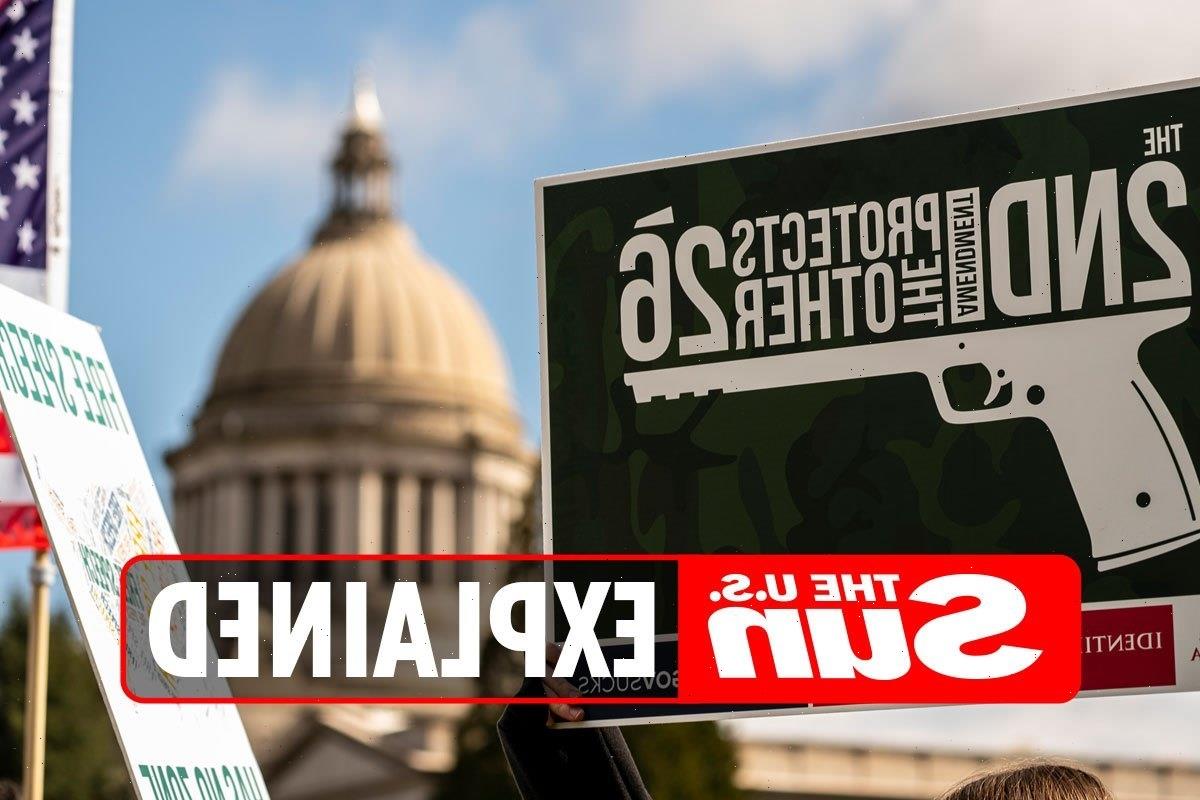THE SECOND Amendment is one of the most commonly cited Amendments in the United States.
It is also one of the most misunderstood.
What is The Second Amendment?
To understand the true meaning of the Second Amendment, we have to first understand what the precise words of the Amendment are.
"A well regulated Militia, being necessary to the security of a free State, the right of the people to keep and bear Arms, shall not be infringed," it reads.
On one hand, this Amendment has been interpreted as the right to have a military.
But on the other — which is the source of much controversy between pro- and anti-gun advocates — this Amendment has been interpreted as the right for every American to own a gun, regardless of circumstances.
So which is the right interpretation?
What is the history of the Second Amendment?
Like the rest of modern American law, the roots of the Second Amendment are in English common law.
According to the English Bill of Rights of 1869, citizens have a natural right to self-defense.
They also have the right to resist oppression, and the civic duty to act in the protection of the state.
However, because this right of self-defense was considered an auxiliary right, it meant that it was only as good of a right as it was exercised in fact.
So, when the US Constitution was ratified, James Monroe in particular pointed out that this Amendment was good to keep a federal army (one that was dispatched by the United States) in check by state armies (ones that were dispatched by individual states).
The initial intent of the Founding Fathers, then, was to provide safeguards for states against potential insurrection.
Given what they'd faced in England, it made sense that they'd not want a repeat performance in America.
So how did the Second Amendment become about individuals owning guns?
Does The Second Amendment allow individuals the right to own a gun?
Throughout the years, most scholars viewed the Second Amendment merely as it was initially intended: an Amendment that provided well-regulated militas the right to protect themselves and others.
But that started to change in 2008.
At that time, a decision in the case of DC v. Heller spoke specifically on individual gun rights.
Specifically, while the decision made clear that while 2A doesn't allow for a blanket right to own guns — meaning that you can't just own a gun regardless of the circumstances — it does allow for an individual to own a gun if he or she is in compliance with his or her state laws.
And that's the other part of the Second Amendment that is commonly misconstrued.
Each state in the union has the right to interpret the Second Amendment the way they see fit, so long as it doesn't infringe upon a person's constitutional rights to own a firearm.
That's why convicted felons aren't allowed to own a gun in any state (the Thirteenth Amendment forbids it), but those who are otherwise allowed to own guns may be subjected to state laws that would restrict or otherwise impede their use.
Because states don't have a universal acceptance of what, precisely, it means, the Second Amendment continues to be controversial.
Source: Read Full Article





